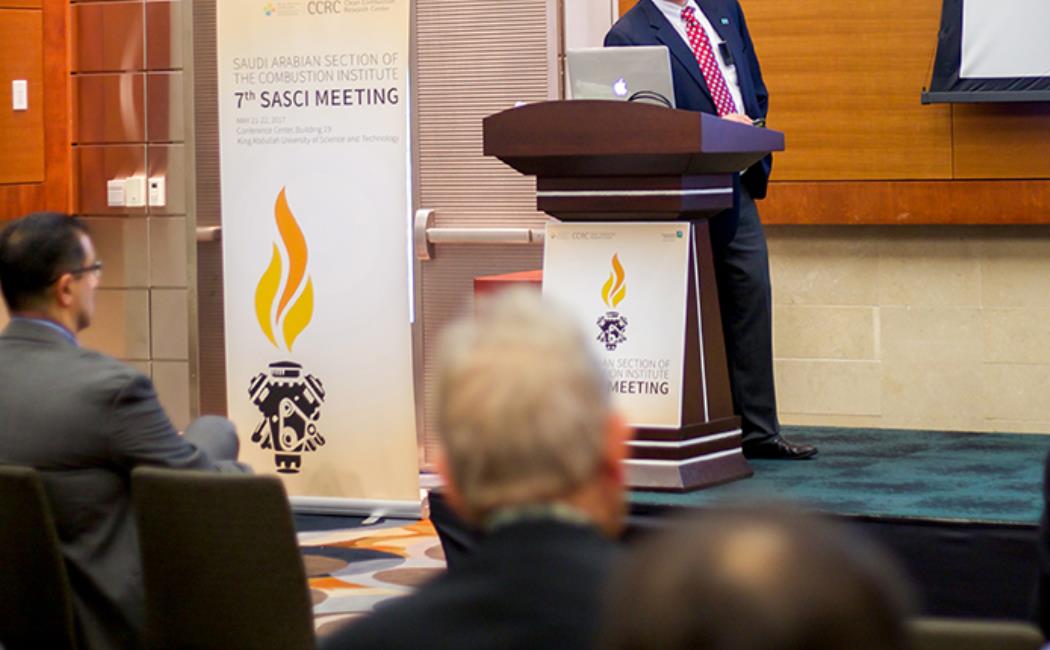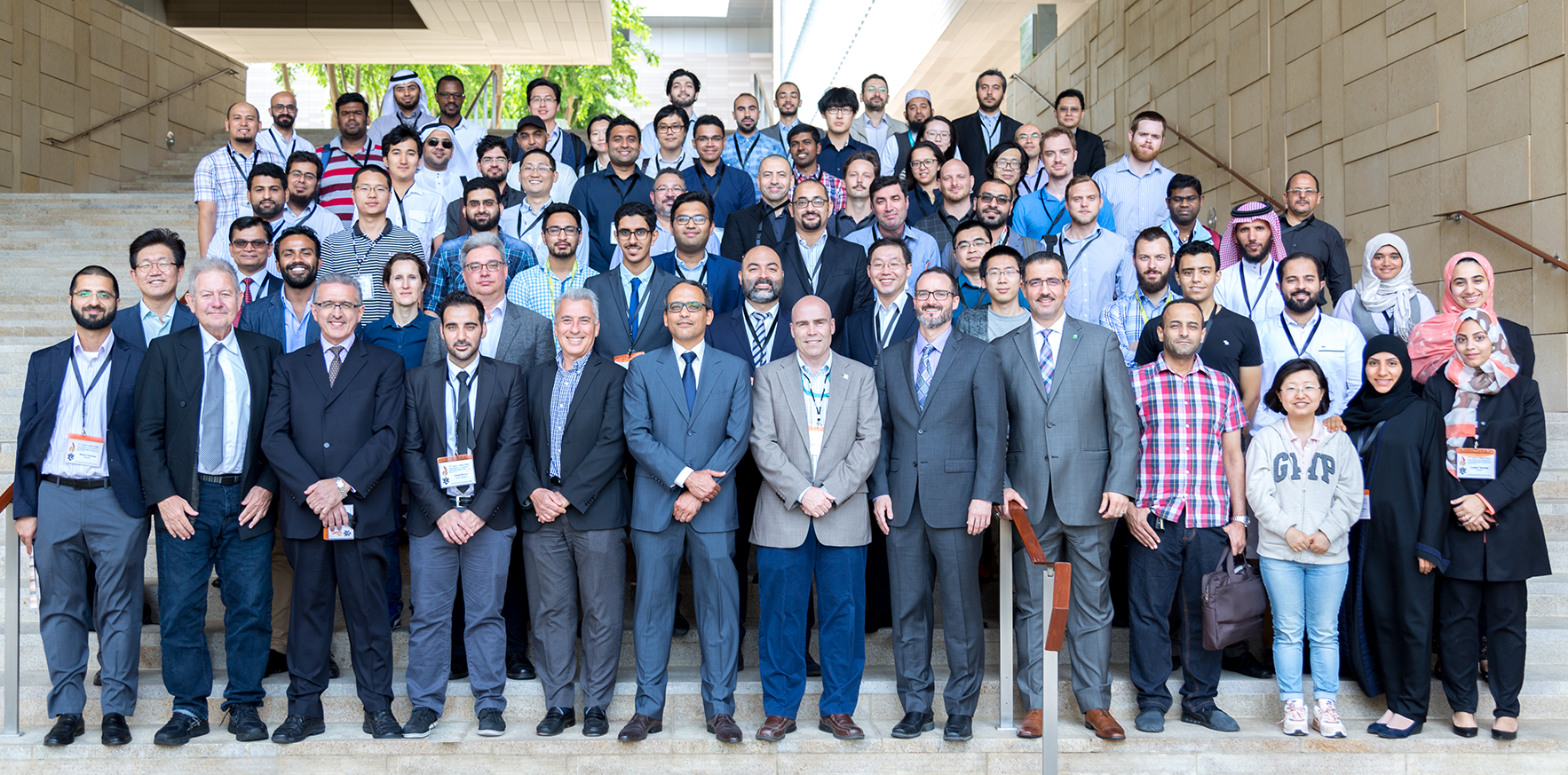

The Clean Combustion Research Center was honored to host the 7th Annual Meeting of the Saudi Arabian Section of Combustion Institute this week. More than 150 combustion researchers from all over Saudi Arabia and the surrounding regions came in to KAUST to discuss all matters related to combustion science. Held on the 21 and 22 May, the meeting featured four invited lectures and 39 oral presentations across four different technical sessions and 20 poster presentations.
In its short history, the Saudi Arabian Section has grown in both size and stature. The Section currently has more than 134 registered members. The Annual Meetings have been attracting an increasing number of national researchers each year with better involvement from KAUST, Saudi Aramco, KFUPM, KACST, KAPSARC, KAU, Royal Commission of Yanbu Research Center, Taif University, Taibah University, Jubail University College and Prince Mohammed Bin Fahad University.
Day one started with a welcome address by Dr. Amer Amer, Chairman of SAS-CI and Director of the Fuel Technology Team in Saudi Aramco followed by an introductory address by Dr. William Roberts, Director, Clean Combustion Research Center.
Energy Demand in the Transportation Sector

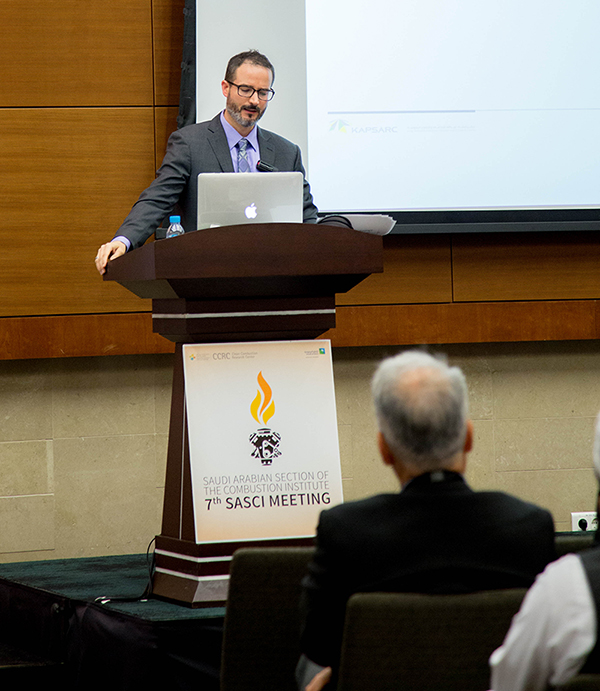
The first invited talk during the meeting was by Dr. Nicholas Chase, Transportation and Urban Infrastructure Team
King Abdullah Petroleum Studies and Research Center (KAPSARC) .
"The surging demand for transportation in emerging economies has reshaped the geography of energy consumption away from industrialized economies and towards much more populous regions where passenger and freight demand could continue to grow rapidly. This is especially true to the two emerging energy giants—China and India. How will this geographic change continue into the future? " said Dr. Chase.
He further discussed how the modal distribution and consequently the types of fuels consumed are widely expected to change from today. There are new energy efficient technologies, greater use of non-petroleum fuels for motive power, and new travel demand paradigms through concepts such as shared mobility.
"The impact of these developments on global transportation energy demand are uncertain but have the potential to greatly change future energy markets and the environment. How can these developments shape the future of global transportation energy demand? " he asked.
Compositional Inhomogeneties in Turbulent Flames

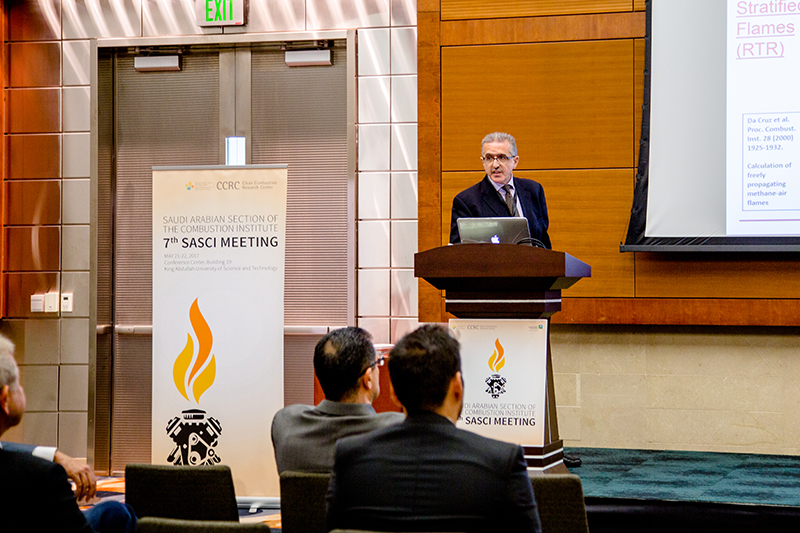
Prof. Assad R. Masri from the School of Aerospace, Mechanical and Mechatronic Engineering, The University of Sydney, Australia; gave the second invited talk of the day. He reviewed the recent advances in the field of Compositional inhomogeneity with particular focus on the Sydney piloted burner with compositionally inhomogeneous inlets.
This burner was recently introduced as an ideal platform featuring mixed-modes of combustion and showing enhanced stability with varying gradients of mixture fraction at the inlet. This and other characteristics of the flames with enhanced stability are now a challenge to modellers worldwide.
CO2 Capture and Utilization Technologies

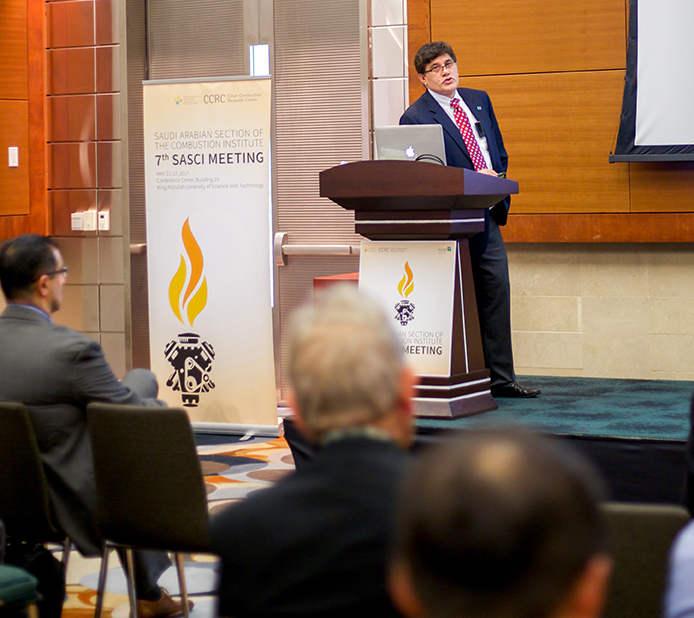
The third invited talk was by Dr. Aqil Jamal from the Carbon Management R&D Division, Saudi Aramco Research and Development Center, Saudi Arabia. He discussed the recent trends in CO2 capture and utilization technologies which is a key technology platform to enable deep reduction of greenhouse gases while meeting the growing global energy demand.
"Power plant and process industries are the two biggest sectors where large amounts of CO2 can be captured in a cost-effective manner for further utilization or underground storage. Recent advances in material science offer new opportunities for economically feasible CO2 capture and utilization in combination with renewable energy. " He said.
He introduced the latest innovative materials and approaches to capture and utilize CO2 from industrial point sources and highlight key carbon capture and utilization technologies under development at Saudi Aramco.
Effects of Flow Turbulence and Fuel Type on the Structure and Blowoff Characteristics of Bluff-Body Stabilized Lean Premixed Flames


The final invited talk of the meeting was by Prof. Baki M. Cetegen, Department of Mechanical Engineering, University of Connecticut, Storrs, CT
He enumerated in detail about his study of the structure of unconfined, lean premixed, bluff body stabilized flames for different levels of turbulence intensity in the approach flow and different fuels (methane, propane, ethylene).
Lean flame blowoff equivalence ratio dependence on fuel type and turbulence conditions was also discussed in view of the laser-based measurements. The experimental results from this canonical flame configuration are being used for validation of LES simulations.
The SASCI meeting had also 4 parallel sessions where 39 oral presentations from combustion researchers from in kingdom and out presented their papers. The sessiosn were on Emissions and Pollutants, Combustion Chemistry & Reaction Kinetics, IC Engines and Gas Turbine Combustion, and Experimental Combustion and Fuels.
- by Raheena Abdurehim


